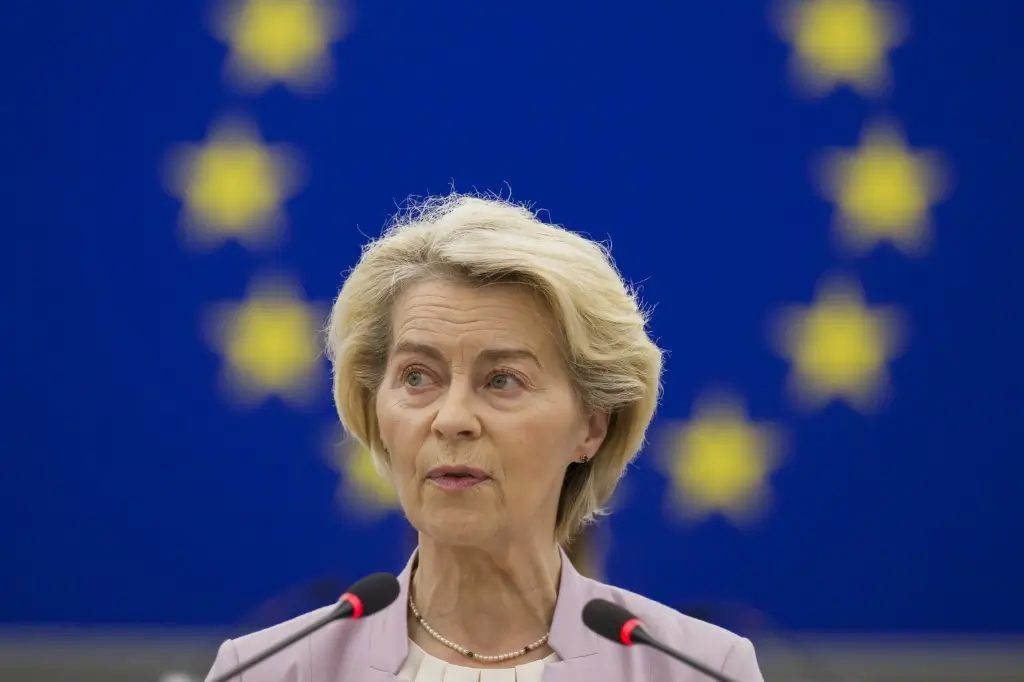
European Commission President Ursula von der Leyen announced on Sunday that the EU will extend its suspension of planned retaliatory tariffs against the United States, as Brussels scrambles to secure a trade agreement before Washington imposes sweeping new levies.
The move comes after US President Donald Trump reignited trade tensions over the weekend by threatening to slap a 30% tariff on EU, unless a deal is reached by August 1. The threat has sent shockwaves through European capitals, prompting urgent calls for unity and decisive action.
Speaking to reporters, von der Leyen stressed the EU’s preference for negotiation over confrontation. "The United States has sent us a letter with measures that would come into effect unless there is a negotiated solution. So we will therefore also extend the suspension of our countermeasures until early August," she said. However, she made it clear that the bloc is not backing down entirely. "At the same time, we will continue to prepare for countermeasures so we’re fully ready if needed."
The EU had previously prepared duties on US goods worth around €21 billion ($24 billion) in response to Trump’s earlier tariffs on European metal imports. That retaliation was put on hold in April to allow space for a broader trade deal. "Since the very beginning, we have worked and are now ready to respond if necessary," von der Leyen reiterated, underscoring Brussels’ dual-track approach of diplomacy backed by readiness for escalation.
The EU member states are currently working on a second list of US products worth up to 95 billion euros. However, Trump is threatening to respond with even higher tariffs on EU products in the event of EU countermeasures.
Germany’s Finance Minister Lars Klingbeil struck a balanced tone, saying: "Serious and solution-oriented negotiations with the United States are still necessary. But if they fail, the EU must respond decisively to protect jobs and businesses in Europe." "Our hand remains outstretched, but we won’t accept just anything," Klingbeil told Sueddeutsche Zeitung.
French President Emmanuel Macron echoed these sentiments over the weekend, urging the European Commission to “resolutely defend European interests”. German Chancellor Friedrich Merz agreed and said he had spoken to Macron, Trump and von der Leyen in the past few days and would "engage intensively" to try to find a solution.
Italian Prime Minister Giorgia Meloni warned Sunday that a "trade war within the West" would weaken everyone.
President Trump’s latest salvo has thrown months of delicate negotiations into turmoil. In a letter released Saturday, Trump justified the potential 30% tariffs by pointing to the United States’ trade imbalance with the EU. This marks a steep escalation from the 20% levy threatened in April, which was paused after market volatility. Now, Brussels faces mounting pressure to avert what could become a damaging trade war.
Chancellor Friedrich Merz sounded an alarm on Sunday about the potential impact on Germany’s export-heavy economy. "A 30% tariff would hit the German export industry hard," Merz warned during ARD’s “Summer Interview.” "If that were to happen, we could put large parts of our economic policy efforts on hold because it would overshadow everything else."
Merz emphasized his personal involvement in seeking a resolution, revealing “intensive” talks with both President Trump and von der Leyen in recent days. "The goal is to ensure these tariffs do not come into effect. Unity within the EU and reasonable dialogue with the American president are key," he said.
The European Union's current suspension of its retaliation over US steel and aluminium tariffs had been set to expire overnight Monday to Tuesday. EU trade ministers are set to meet Monday in Brussels to discuss the bloc's response to Trump's latest move, and crucially how strong a line to take with Washington.
Trump’s extension of his tariff deadline to August 1 gives negotiators a narrow window to strike a deal and avoid escalation. As the clock ticks down, Brussels finds itself at a crossroads: Should it stay patient in hopes of compromise, or prepare for a showdown to protect Europe’s industries and jobs?
The coming weeks will determine whether transatlantic trade relations return to stability, or plunge into a new era of economic conflict.